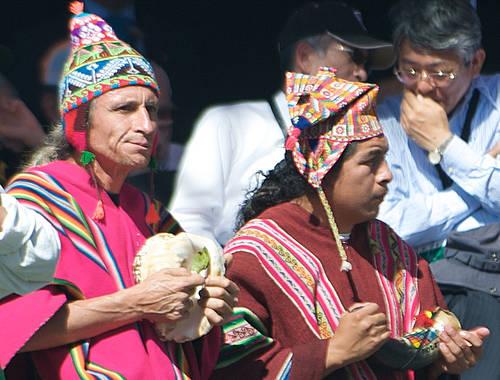In an ecumenical declaration to be presented at the final session of the World People's Conference on Climate Change and the Rights of Mother Earth, Christian organizations and individuals stress the positive role that religions and spirituality can play for a more harmonious coexistence between humanity and nature.
The 19-22 April conference in Cochabamba is hosted by Bolivian president Evo Morales. Over 10,000 people are attending, according to media reports, many of them from indigenous peoples and environmental networks.
The closing session will be held on International Mother Earth Day, 22 April. This yearly event was introduced by the United Nations General Assembly in 2009, adopting a Bolivia-led resolution.
"Climate change is the product of a human mentality which regards nature as an object of domination, exploitation and manipulation and the human being as its owner and the measure of all things," the ecumenical declaration states.
Its signatories "recognize that a certain interpretation of the Judeo-Christian tradition has contributed to fostering this kind of anthropocentrism and merciless exploitation of nature, misinterpreting the responsibility of being a 'caretaker' and advocate for the creation, entrusted to humanity by the creator."
The declaration goes on to call for a new spirituality of respectful co-existence, to be forged in a dialogue among the peoples of the earth. It is part of the contribution a coalition of Christian organizations brought to the conference.
The coalition also organized panels on religions - especially Christianity - and climate change and the presentation of recent publications on the topic. It includes the World Council of Churches (WCC) and its Bolivian member churches as well as the Latin American Council of Churches (CLAI), and is coordinated by the Andean Ecumenical Higher Institute of Theology (ISEAT).
"The People's Conference was an opportunity to listen to those who will be most affected by climate change," said Dr Guillermo Kerber, WCC programme executive on climate change. "The WCC sees it as an instrument to build a global consensus on climate change and put forward the perspective of actors who have not been heard enough in the United Nations negotiation process – such as the indigenous peoples."
WCC work in solidarity with indigenous peoples
More information on the conference is available on the ISEAT website (in Spanish)






